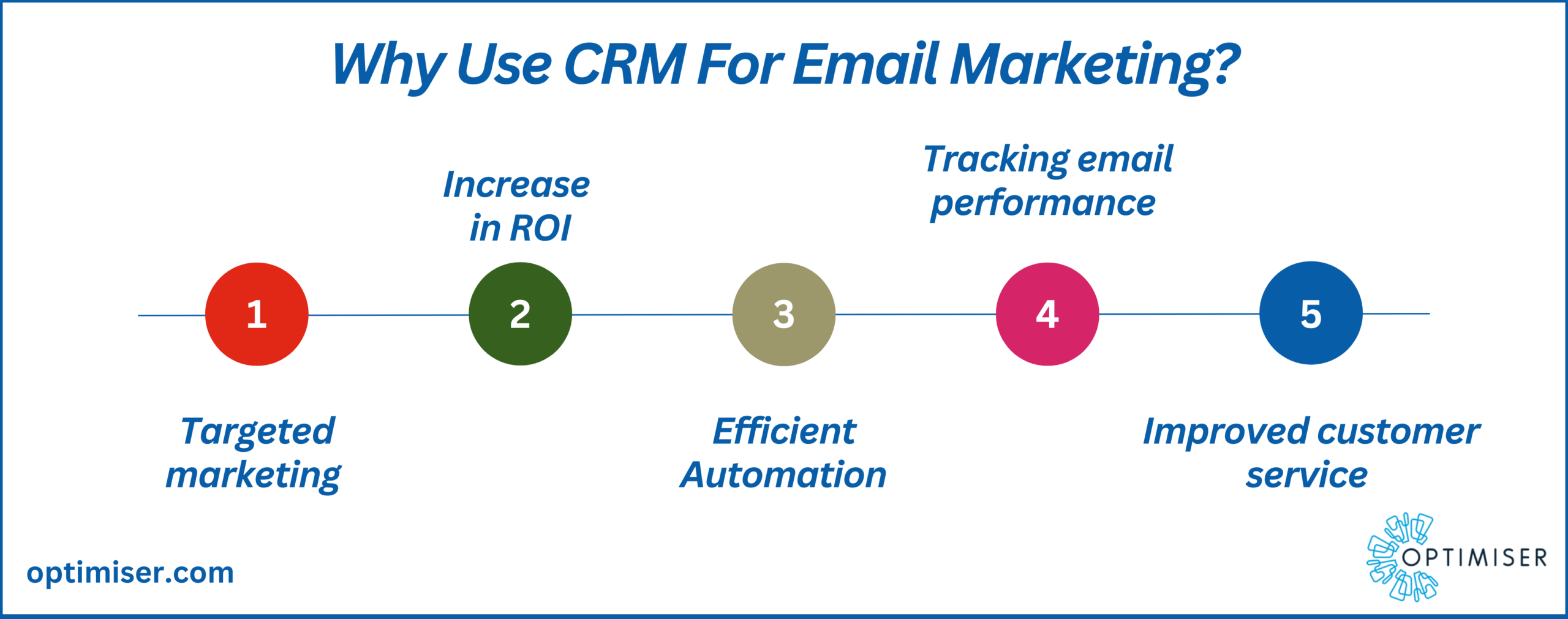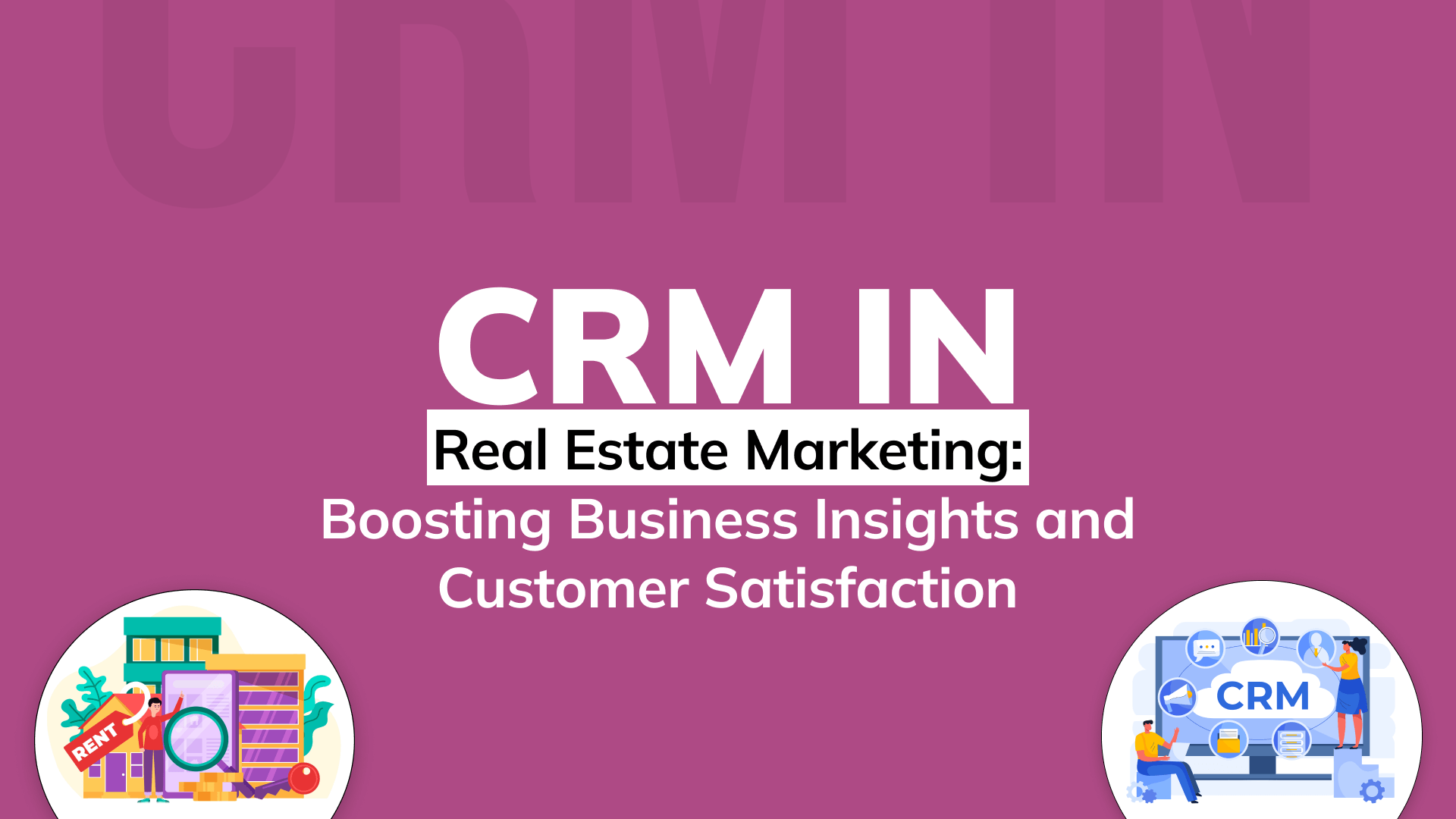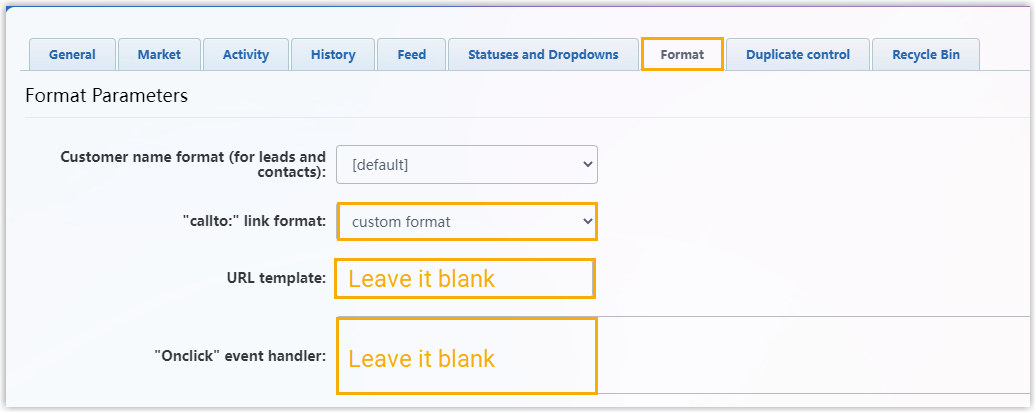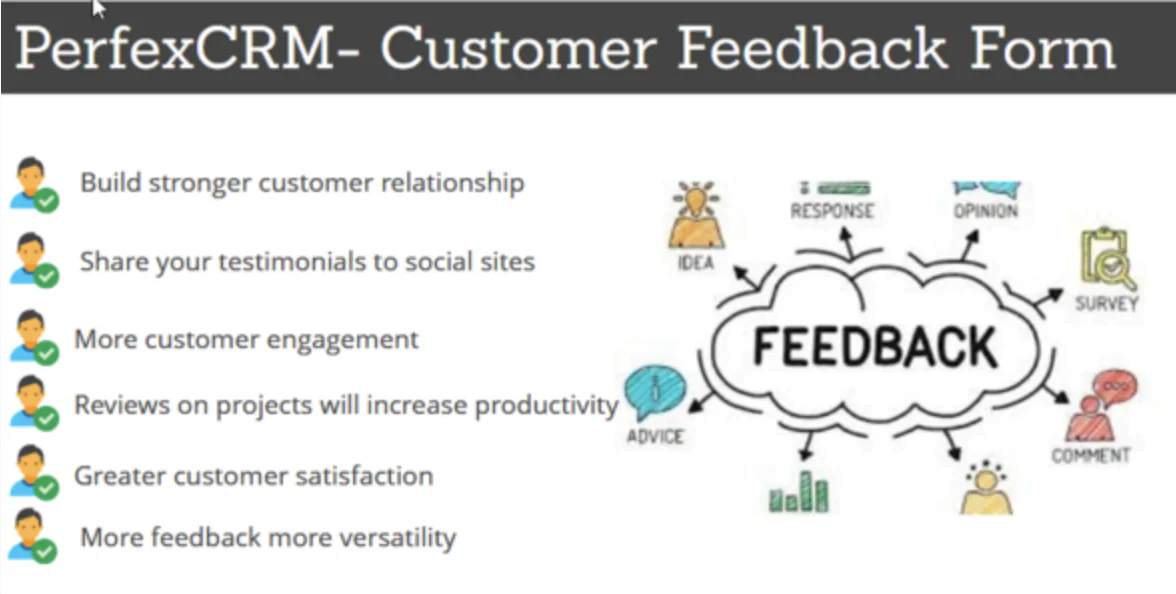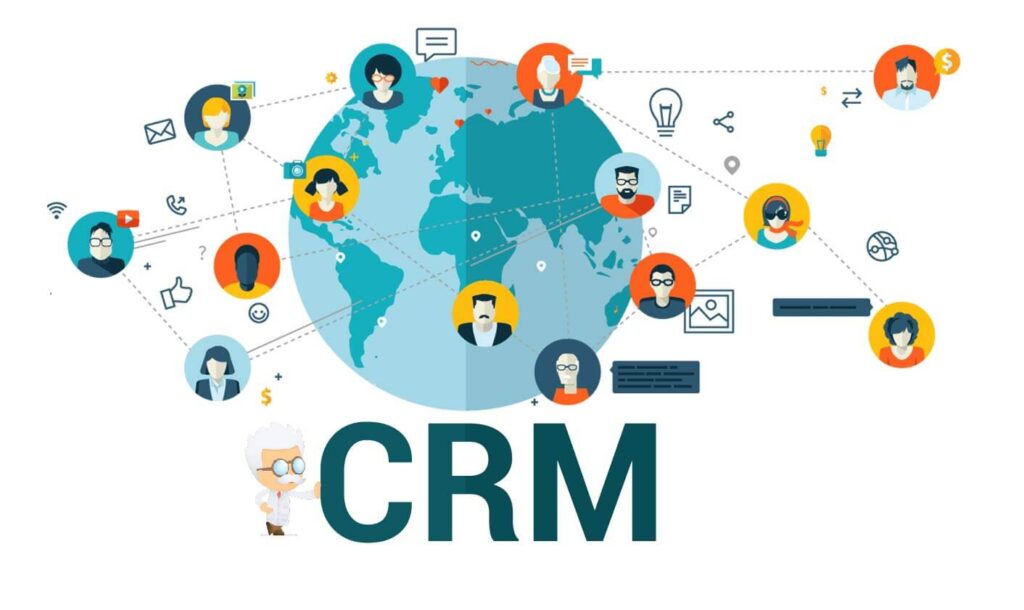
Mastering CRM Marketing Campaigns: A Comprehensive Guide to Boosting Customer Engagement and ROI
In today’s fiercely competitive business landscape, the ability to understand and connect with your customers is no longer a luxury; it’s a necessity. Customer Relationship Management (CRM) systems have evolved from mere contact management tools to sophisticated platforms that empower businesses to orchestrate highly targeted and effective marketing campaigns. This comprehensive guide delves into the intricacies of CRM marketing campaigns, providing you with the knowledge and strategies needed to not only survive but thrive in the age of the customer.
What is a CRM Marketing Campaign?
At its core, a CRM marketing campaign is a strategic initiative that leverages a CRM system to engage with customers and prospects, nurture leads, and ultimately drive conversions. Unlike generic, mass-marketing efforts, CRM campaigns are highly personalized, data-driven, and designed to deliver the right message to the right person at the right time. This precision is what sets CRM campaigns apart, allowing businesses to build stronger relationships, increase customer loyalty, and maximize their return on investment (ROI).
Think of it like this: imagine you’re hosting a party. A mass-marketing approach would be like sending out a generic invitation to everyone in the neighborhood. A CRM campaign, on the other hand, would be like knowing each guest personally, understanding their preferences, and tailoring the invitation to make them feel valued and excited to attend. That’s the power of CRM.
The Core Components of a Successful CRM Marketing Campaign
Building a successful CRM marketing campaign is a multifaceted endeavor. It requires careful planning, strategic execution, and continuous optimization. Let’s break down the essential components:
1. Define Your Goals and Objectives
Before you even begin to think about tactics, you need to establish clear, measurable, achievable, relevant, and time-bound (SMART) goals. What do you want to achieve with your CRM campaign? Are you looking to increase sales, improve customer retention, generate leads, or something else entirely? Your goals will dictate every other aspect of your campaign, from the target audience to the messaging and the channels you use.
For example, a goal might be to increase sales of a specific product by 15% within the next quarter. Another might be to improve customer retention rates by 10% over the next year. Without clearly defined goals, you’ll be navigating in the dark, unable to measure your success or make informed adjustments.
2. Understand Your Target Audience
Knowing your audience is paramount. This involves creating detailed customer personas, which are semi-fictional representations of your ideal customers. Consider their demographics, psychographics (interests, values, lifestyle), buying behaviors, pain points, and motivations. The more you know about your audience, the better you can tailor your messaging and offers to resonate with them.
Use your CRM data to segment your audience based on various criteria, such as purchase history, website activity, demographics, and engagement levels. This segmentation allows you to create highly targeted campaigns that address the specific needs and interests of each group.
3. Choose the Right CRM System and Tools
Selecting the right CRM system is crucial. It should align with your business needs, budget, and technical capabilities. Consider factors such as features, scalability, integrations with other systems, and ease of use. Popular CRM platforms include Salesforce, HubSpot, Zoho CRM, and Microsoft Dynamics 365.
Once you’ve chosen your CRM, explore its various features and tools, such as:
- Contact Management: Store and manage customer data, including contact information, purchase history, and communication logs.
- Segmentation: Divide your audience into specific groups based on various criteria.
- Automation: Automate repetitive tasks, such as sending emails, updating records, and assigning tasks.
- Reporting and Analytics: Track key metrics and gain insights into campaign performance.
- Email Marketing: Design and send targeted email campaigns.
- Lead Scoring: Prioritize leads based on their likelihood to convert.
4. Develop Compelling Content and Messaging
Your content is the heart of your CRM marketing campaign. It needs to be engaging, relevant, and valuable to your target audience. Consider the different stages of the customer journey and tailor your content accordingly. For example, you might use educational content to attract leads, product demos to nurture prospects, and personalized offers to convert customers.
Craft compelling headlines, write clear and concise copy, and use visuals to capture your audience’s attention. Always include a clear call to action (CTA) that tells your audience what you want them to do. Test different content formats and messaging to see what resonates best with your audience.
5. Select the Right Channels
Choose the channels that your target audience uses most frequently. This might include email, social media, SMS, direct mail, or a combination of channels. Consider the strengths and weaknesses of each channel and how they can be used to achieve your campaign goals.
For example, email is a great channel for sending personalized messages and nurturing leads, while social media is ideal for building brand awareness and engaging with your audience. SMS can be used for sending time-sensitive offers and reminders.
6. Automate Your Workflows
Automation is a key benefit of using a CRM system. Automate repetitive tasks, such as sending welcome emails, following up with leads, and updating customer records. This frees up your time to focus on more strategic activities, such as developing content and analyzing campaign performance.
CRM systems often offer workflow automation tools that allow you to create automated sequences of actions based on specific triggers, such as a customer signing up for your email list or downloading a piece of content. Use these tools to streamline your marketing processes and improve efficiency.
7. Test, Analyze, and Optimize
CRM marketing campaigns are not a set-it-and-forget-it endeavor. They require continuous testing, analysis, and optimization. Regularly monitor your campaign performance, track key metrics such as open rates, click-through rates, conversion rates, and ROI. Use A/B testing to experiment with different elements of your campaign, such as subject lines, content, and CTAs. Analyze the results and make adjustments as needed to improve performance.
The more you test and optimize, the better your campaigns will become. This is an ongoing process of learning and improvement.
Types of CRM Marketing Campaigns
CRM systems can be used to create a wide variety of marketing campaigns. Here are some common examples:
1. Lead Nurturing Campaigns
These campaigns are designed to nurture leads through the sales funnel, providing them with valuable information and building relationships until they are ready to make a purchase. They often involve a series of automated emails, personalized content, and targeted offers.
For example, you might send a series of emails to a lead who downloaded an ebook, providing them with additional information about your products or services and eventually inviting them to schedule a demo or request a quote.
2. Customer Onboarding Campaigns
These campaigns are designed to welcome new customers, introduce them to your products or services, and guide them through the initial stages of their customer journey. They often include welcome emails, tutorials, and helpful resources.
A well-designed onboarding campaign can significantly improve customer satisfaction and retention rates. It helps customers feel valued and supported from the start.
3. Customer Retention Campaigns
These campaigns are designed to keep existing customers engaged and prevent them from churning. They often involve personalized offers, exclusive content, and proactive communication.
For example, you might send a special discount to a customer who hasn’t made a purchase in a while, or you might offer them early access to new products or services.
4. Cross-Selling and Upselling Campaigns
These campaigns are designed to increase sales by recommending related products or services to existing customers. They often involve personalized product recommendations based on the customer’s purchase history or browsing activity.
For example, if a customer purchases a camera, you might recommend a memory card or a carrying case.
5. Win-Back Campaigns
These campaigns are designed to re-engage customers who have become inactive or have stopped purchasing from you. They often involve special offers, personalized messages, and a renewed focus on the customer’s needs.
For example, you might send an email to a customer who hasn’t made a purchase in a while, offering them a discount or a special promotion.
6. Event-Based Campaigns
These campaigns are triggered by specific events in the customer’s lifecycle, such as a birthday, anniversary, or purchase. They often involve personalized messages and special offers.
For example, you might send a birthday email to a customer, offering them a special discount or a free gift.
Best Practices for CRM Marketing Campaigns
To maximize the effectiveness of your CRM marketing campaigns, consider these best practices:
- Personalize Your Messages: Use customer data to tailor your messaging and offers to each individual. Address them by name, reference their purchase history, and show that you understand their needs.
- Segment Your Audience: Divide your audience into specific groups based on various criteria, such as demographics, purchase history, and engagement levels. This allows you to create highly targeted campaigns.
- Automate Your Workflows: Automate repetitive tasks to save time and improve efficiency. Use workflow automation tools to create automated sequences of actions based on specific triggers.
- Use the Right Channels: Choose the channels that your target audience uses most frequently. This might include email, social media, SMS, or a combination of channels.
- Test and Optimize: Regularly monitor your campaign performance and use A/B testing to experiment with different elements of your campaign. Analyze the results and make adjustments as needed to improve performance.
- Provide Value: Always provide value to your audience. Offer helpful information, exclusive content, and special offers.
- Be Consistent: Maintain a consistent brand voice and messaging across all your marketing channels.
- Track Your Results: Track key metrics such as open rates, click-through rates, conversion rates, and ROI. Use these metrics to measure the success of your campaigns and make informed adjustments.
- Respect Privacy: Be transparent about how you collect and use customer data. Comply with all relevant privacy regulations, such as GDPR and CCPA.
- Stay Updated: The marketing landscape is constantly evolving. Stay informed about the latest trends and technologies.
Measuring the Success of Your CRM Marketing Campaigns
Measuring the success of your CRM marketing campaigns is essential for determining your ROI and identifying areas for improvement. Here are some key metrics to track:
- Open Rate: The percentage of emails that are opened.
- Click-Through Rate (CTR): The percentage of recipients who click on a link in your email.
- Conversion Rate: The percentage of recipients who complete a desired action, such as making a purchase or filling out a form.
- Customer Acquisition Cost (CAC): The cost of acquiring a new customer.
- Customer Lifetime Value (CLTV): The predicted revenue a customer will generate over the course of their relationship with your business.
- Return on Investment (ROI): The profit generated by your marketing campaigns.
- Customer Retention Rate: The percentage of customers who remain customers over a specific period.
- Churn Rate: The percentage of customers who stop doing business with you over a specific period.
- Website Traffic: The amount of traffic driven to your website by your marketing campaigns.
- Lead Generation: The number of new leads generated by your campaigns.
Use your CRM system’s reporting and analytics tools to track these metrics and gain insights into campaign performance. Regularly review your data and make adjustments to your campaigns as needed to improve your results.
Tools and Technologies for CRM Marketing Campaigns
The right tools can significantly streamline your CRM marketing efforts. Here are some essential tools and technologies:
- CRM Software: As mentioned previously, the foundation of your CRM marketing efforts. Examples include Salesforce, HubSpot, Zoho CRM, and Microsoft Dynamics 365.
- Email Marketing Platforms: Tools for designing and sending email campaigns, such as Mailchimp, Constant Contact, and GetResponse.
- Marketing Automation Software: Platforms for automating marketing tasks, such as HubSpot, Marketo, and Pardot.
- Social Media Management Tools: Tools for managing your social media presence, such as Hootsuite, Buffer, and Sprout Social.
- Analytics Tools: Tools for tracking and analyzing your campaign performance, such as Google Analytics.
- Landing Page Builders: Tools for creating landing pages, such as Unbounce and Leadpages.
- A/B Testing Tools: Tools for testing different elements of your campaigns, such as Optimizely and VWO.
The specific tools you choose will depend on your business needs and budget. Research the different options and select the tools that best fit your requirements.
Common Challenges and How to Overcome Them
While CRM marketing campaigns can be incredibly effective, they can also present some challenges. Here are some common challenges and how to overcome them:
- Data Quality: Poor data quality can undermine your campaigns. Ensure that your CRM data is accurate, complete, and up-to-date. Implement data cleansing processes and regularly review your data.
- Lack of Personalization: Generic messaging will not resonate with your audience. Use customer data to personalize your messages and offers. Segment your audience and tailor your campaigns to their specific needs and interests.
- Poor Segmentation: If your audience segments are too broad, your campaigns will not be as effective. Create more granular segments based on various criteria, such as demographics, purchase history, and engagement levels.
- Lack of Automation: Manually executing marketing tasks can be time-consuming and inefficient. Automate repetitive tasks to save time and improve efficiency.
- Not Tracking Results: Without tracking your results, you won’t know what’s working and what’s not. Regularly monitor your campaign performance and track key metrics.
- Integration Issues: Integrating your CRM with other systems can be complex. Ensure that your CRM system integrates seamlessly with your other marketing tools.
- Budget Constraints: CRM marketing can be expensive. Create a realistic budget and prioritize your marketing efforts.
- Lack of Expertise: CRM marketing requires specialized skills and knowledge. Invest in training or hire experienced professionals.
- Data Privacy Concerns: Comply with all relevant privacy regulations, such as GDPR and CCPA. Be transparent about how you collect and use customer data.
The Future of CRM Marketing Campaigns
The landscape of CRM marketing is constantly evolving. Here are some trends that are shaping the future of CRM marketing:
- Artificial Intelligence (AI): AI is being used to automate marketing tasks, personalize content, and improve campaign performance.
- Machine Learning (ML): ML is being used to predict customer behavior and personalize recommendations.
- Hyper-Personalization: Businesses are using data to create highly personalized experiences for their customers.
- Omnichannel Marketing: Businesses are engaging with customers across multiple channels, such as email, social media, and SMS.
- Focus on Customer Experience: Businesses are prioritizing the customer experience and building stronger relationships with their customers.
- Increased Use of Video: Video is becoming an increasingly popular medium for marketing.
- Emphasis on Data Privacy: Businesses are becoming more transparent about how they collect and use customer data.
To stay ahead of the curve, businesses need to embrace these trends and adapt their CRM marketing strategies accordingly. This includes investing in AI and ML technologies, focusing on hyper-personalization, and prioritizing the customer experience.
Conclusion: Embrace the Power of CRM Marketing
CRM marketing campaigns are a powerful tool for businesses of all sizes. By leveraging the capabilities of CRM systems, businesses can build stronger relationships with their customers, increase customer loyalty, and maximize their ROI.
By following the strategies outlined in this guide, you can create effective CRM marketing campaigns that drive results. Remember to define your goals, understand your target audience, choose the right CRM system, develop compelling content, select the right channels, automate your workflows, and continuously test, analyze, and optimize your campaigns.
The journey to CRM marketing mastery is ongoing, and continuous learning and adaptation are key. Embrace the power of CRM, and watch your business thrive in the customer-centric world.

